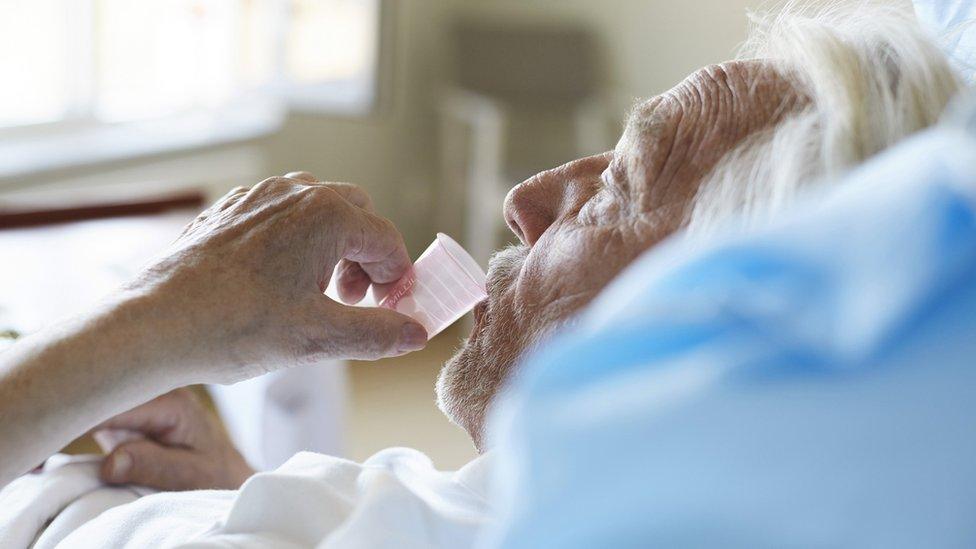New University of Exeter research programme to improve treatment of delirium
- Published

Delirium often affects older patients, and is common in people with dementia
A new £2.5m programme will aim to find ways of helping people recover from delirium after hospital stays.
Experts say about a quarter of older people admitted to hospital experience delirium, a feeling of confusion.
The University of Exeter research programme will look at ways to support recovery for the condition that is common in people with dementia.
Prof Louise Allan said the trial is "the largest ever to find a way to support recovery".
Prof Allan, who is leading the study at the university, said: "Delirium is extremely common and leaves people incredibly vulnerable, yet so far there's surprisingly little research to aid recovery.
"Our trial is the largest ever to find a way to support recovery and help ensure an encounter with delirium doesn't lead to a worsening of symptoms long-term."
Funding from the National Institute for Health Research will facilitate a programme of research led by the University of Exeter, the Royal Devon and Exeter NHS Foundation Trust, and PenARC, a partnership between NHS services, local authorities, universities and charities.
They will work with experts and patients at six NHS sites across the country, to develop, then test a programme to aid recovery.
The study will test out measures including physical exercise, engaging with brain-stimulating activities such as puzzles and games, and emotional support.

Follow BBC News South West on Twitter, external, Facebook, external and Instagram, external. Send your story ideas to spotlight@bbc.co.uk, external.
Related topics
- Published17 March 2021

- Published30 September 2020

- Published19 May 2020
